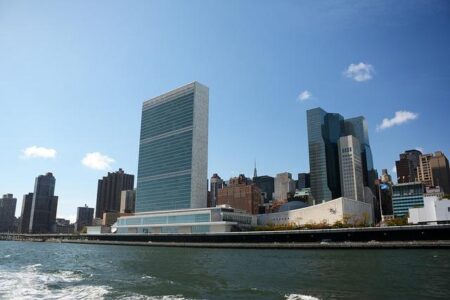In a significant development for bilateral relations, India’s Commerce and Industry Minister Piyush Goyal has hinted at imminent “good news” regarding the highly anticipated India-US trade deal. Speaking to the media, Goyal emphasized that progress hinges on finalizing a “fair” agreement that addresses key concerns of farmers, fishermen, and small businesses. As negotiations advance, stakeholders across sectors await a pact that promises to deepen economic ties while safeguarding domestic interests, marking a crucial chapter in the evolving trade partnership between the world’s largest democracies.
India and US Edge Closer to Fair Trade Agreement with Promises of Mutual Benefits
Trade negotiations between India and the United States have taken a promising turn, as both nations edge closer to finalizing a comprehensive agreement aimed at ensuring fairness and mutual benefit. Commerce Minister Piyush Goyal expressed optimism about imminent breakthroughs, emphasizing that the deal will safeguard the interests of critical domestic sectors, including farmers, fishermen, and small businesses. The talks have been characterized by a focus on equitable market access, tariff reductions, and strengthened cooperation in key industries such as pharmaceuticals, technology, and renewable energy.
Key elements under consideration in the agreement include:
- Farmgate protections: Ensuring price stability and export opportunities for agricultural producers.
- Fisheries collaboration: Sustainable practices and market expansion for coastal communities.
- SME empowerment: Streamlined export procedures and enhanced access to US markets.
- Intellectual property rights: Balanced frameworks that incentivize innovation while supporting generics.
| Sector | India’s Priority | US’s Priority |
|---|---|---|
| Agriculture | Market access, price safeguards | Tariff reductions, standards alignment |
| Technology | Data flow protection, innovation support | IP rights, investment facilitation |
| Manufacturing | Export incentives, labor protections | Supply chain integration, quality assurance |
Trade Minister Emphasizes Protection for Farmers, Fishermen, and Small Businesses in Upcoming Deal
Trade Minister Piyush Goyal has underscored the importance of securing a trade agreement that safeguards the interests of India’s farmers, fishermen, and small business owners. Speaking on the ongoing negotiations with the United States, Goyal insisted that any deal must be “fair and equitable,” reflecting India’s priorities and sensitivities. Emphasizing transparency and inclusivity, he noted that the government remains committed to protecting vulnerable sectors that form the backbone of the Indian economy.
Key focus areas outlined by the minister include:
- Agricultural safeguard measures to prevent market distortions
- Support frameworks for small-scale fishers to access new export markets
- Protection of micro, small, and medium enterprises (MSMEs) against unfair competition
| Sector | Intended Benefit | Key Challenge | ||
|---|---|---|---|---|
| Farmers | Fair pricing & export assurances | Tariff imbalance | ||
| Fishermen | Access to US seafood markets | Sustainable quotas | ||
| Small Businesses | Level playing field in trade | Small Businesses | Level playing field in trade | Unfair competition |
| Support Mechanism | Beneficiaries | Expected Impact |
|---|---|---|
| Microcredit Expansion | Small Businesses | Improved liquidity and growth potential |
| Skill Development Workshops | Farmers and Fishermen | Increased productivity and innovation |
| Market Linkage Programs | Artisans and Cottage Industries | Better market integration and sales |
In Conclusion
As negotiations continue, Commerce Minister Piyush Goyal’s optimistic remarks signal potential progress in the India-US trade discussions. While stakeholders such as farmers, fishermen, and small businesses await assurances that their interests will be safeguarded, the government emphasizes its commitment to securing a “fair” and balanced agreement. The coming weeks will be crucial in determining how the two economic giants finalize terms that could reshape bilateral trade dynamics in the years ahead.




